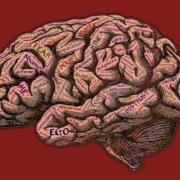Cheating May Cause Boost in Happiness
Citing a 2013 study by several ethics researchers, including EthSys contributor Francesca Gino, The New York Times reports that people experience an elevated mood after cheating, as long as they do not believe anyone was harmed by it. Even if there was no monetary incentive to cheat, or if someone else cheated on the subjects’ behalf, “they felt just fine about it.” More than fine: happy.
Further investigation is necessary to isolate the mechanism by which cheating leads to a positive boost in mood, but it would be unsurprising to see a link between this effect and our well documented ability to defend or justify cheating behavior. Elevated affect is associated with increased creativity, particularly when generating arguments that bolster one’s own position. Perhaps cheating’s positive emotional feedback is part of a suite of behaviors adapted to encourage individuals to take more than their fair share so as to better accumulate resources to advance their own genetic continuity. Feeling good about cheating, particularly when it appears victimless, enables us to hold to the illusion of righteousness–and to protect our egos (and resources) in the event that our misconduct is discovered. But no matter its origin, the connection between cheating and happiness points to a host of potential problems in businesses, particularly those where harm to others is relegated to the very end of a distant chain of transactions. Compliance officers and leaders would do well to examine this research if they are committed to the highest standards of ethicality for their organizations.
For more information on related subjects, see our page on cheating and honesty.

